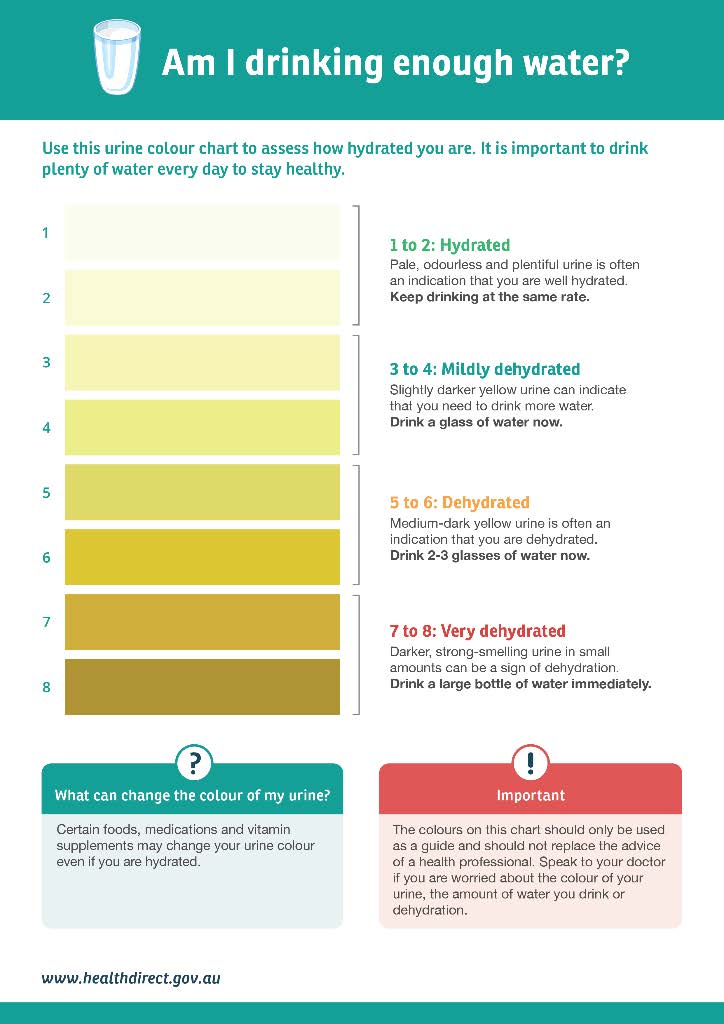Rebecca Tilby, Registered Manager at Katherine Harriet Ltd looks at Hydration.
Why Hydration is important.
Our bodies are made up of 50-70 % water (H2O) and this enables our bodies to perform our bodily functions. This is more important during the summer months when temperatures rise above the average. During the summer months, it is essential that during these times that the daily intake of fluids ranges from 3-3 litres for men and 2-3 litres for women or roughly 8 glasses of water. We start to feel thirsty when our body water percentage drops about two per cent lower. The thirst centre of the brain is in the hypothalamus. This feeling of thirst is a survival instinct; it’s our brain telling us to refill on H2O so that our body doesn’t start dehydrating.
So why do we need to drink this amount of water?
Taking on fluid throughout the day is essential for the following reasons: –
- Regulate our body temperature.
- Keep our joint regulated.
- Prevent infections.
- Deliver nutrients to cells to keep our organs functioning properly.
- Impairs the healing of a wound. Adequate fluid intake is necessary to support the blood flow to wounded tissues and to prevent the additional breakdown of skin.
Drinking water has other beneficial effects on the body. It helps to increase energy and relieves fatigue and as your brain is mainly composed of water it helps with concentration and focusing. Water flushes toxins out of the body and as a result, might help with weight loss which in turn keeps the skin looking plump and healthy.
Areas to remember that might affect your level of water can be seen below.
- Environment. During warmer weather and especially during a heat wave your body will use water to regulate your body heat. In this process, your body will use extra fluid.
- Exercise. When exercising the body temperature will rise and again it will try and regulate this by will perspiring to release the heat again this action will cause the body to lose fluid by sweating.
- Overall health. When suffering from a stomach bug, fever, or diarrhoea. Extra fluid will need to be taken to replace any fluid lost through sickness or lost stoles.
- Pregnancy and breastfeeding
Dehydration
Failing to drink enough fluids will result in the body becoming dehydrated.
The warning signs of this will be that you will start to see signs that your body is struggling to function properly, and your body will give the following signs it is unhappy.
- A feeling of thirst and the feeling of being lightheaded.
- A dry mouth
- A feeling of fatigue will set in
- You begin to feel brain fog set in
- Urine becomes a dark yellow colour.
- Bowel movements change due to lack of fluid available the stools become hard and difficult to pass.
- Headaches. As the brain becomes more dehydrated it finds it hard to function and has to work twice as hard, the body then develops headaches and the eyes become dry and irritated.
- Your brain begins to send signals that its needs food and you start to feel hungry.
In more serious cases dehydration can cause seizures, swelling of the brain, and kidney failure. Shock and coma which potentially could lead to death.
We need to remember when we are out and about, at work or just sitting about at home to replenish body fluids by having a break, drinking either water or tea.

Diseases that effect the hydration of the body
Diabetes. Having uncontrolled or untreated diabetes puts you at high risk of dehydration. Kidney disease also increases your risk, as do medications that increase urination.
Even having a cold or sore throat makes you more susceptible to dehydration because you’re less likely to feel like eating or drinking when you’re sick.
Ulcerative colitis. Where the loose bowels movements are very watery.
Crohn’s disease. This can result in regular loos bowels which results in fluid being lost.
Cancer. This can be affected by just the disease and the chemo.
Celiac disease. Can cause a reaction in the gut and the result is again loose bowels.
Ways to treat De-Hydration
When the beginning symptoms of dehydration start, you can rehydrate by consuming fluids that contain electrolytes, such as sports drinks or oral rehydration solutions. There are also foods available that have a high-water content, such as fruits and vegetables.
If you still do not feel very well it is advisable to call 111 to seek advice.
Ways to keep your body Hydrated.
There are many ways to make sure you are keeping your body hydrated to ensure you remain healthy.
Make sure you have a glass of water first thing in the morning and before every meal.
Setting a timer to remind you to take some fluid on board.
Buy a water bottle that is fun and that is easy to carry around with you.
Eating fruits and vegetables have a high content of water and is a good way of adding fluids to the diet. Watermelons and spinach have a very high content.
Adding a flavoured squash to water to help drink water if you don’t like it naturally.
Coffees and teas provide an added form of fluids but be mindful that some fizzy drinks have a high amount of sugar.


